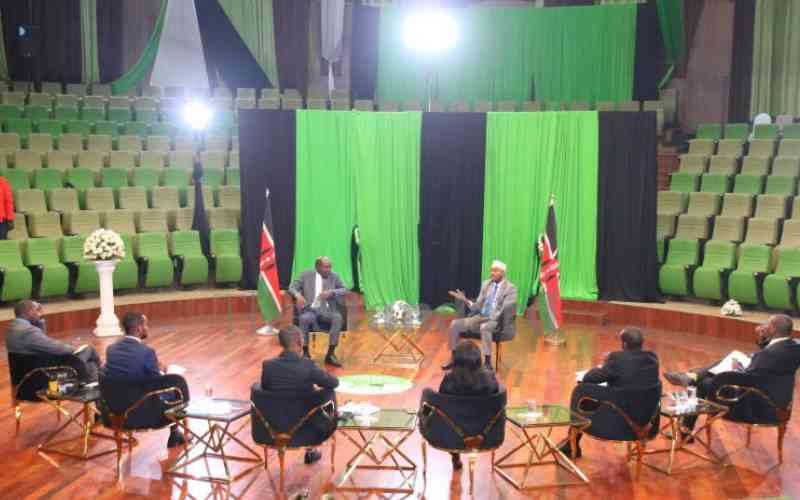×
The Standard e-Paper
Home To Bold Columnists

The Independent Electoral and Boundaries Commission (IEBC) has an arduous task of convincing Kenyans that it is adequately prepared to conduct the August 9 General Election. The commission must also allay fears of alleged planned poll interference, with only 24 days left to the D-day.
This follows tough questions on election preparedness during a cross-media interview at the Bomas of Kenya, Nairobi, on Wednesday.